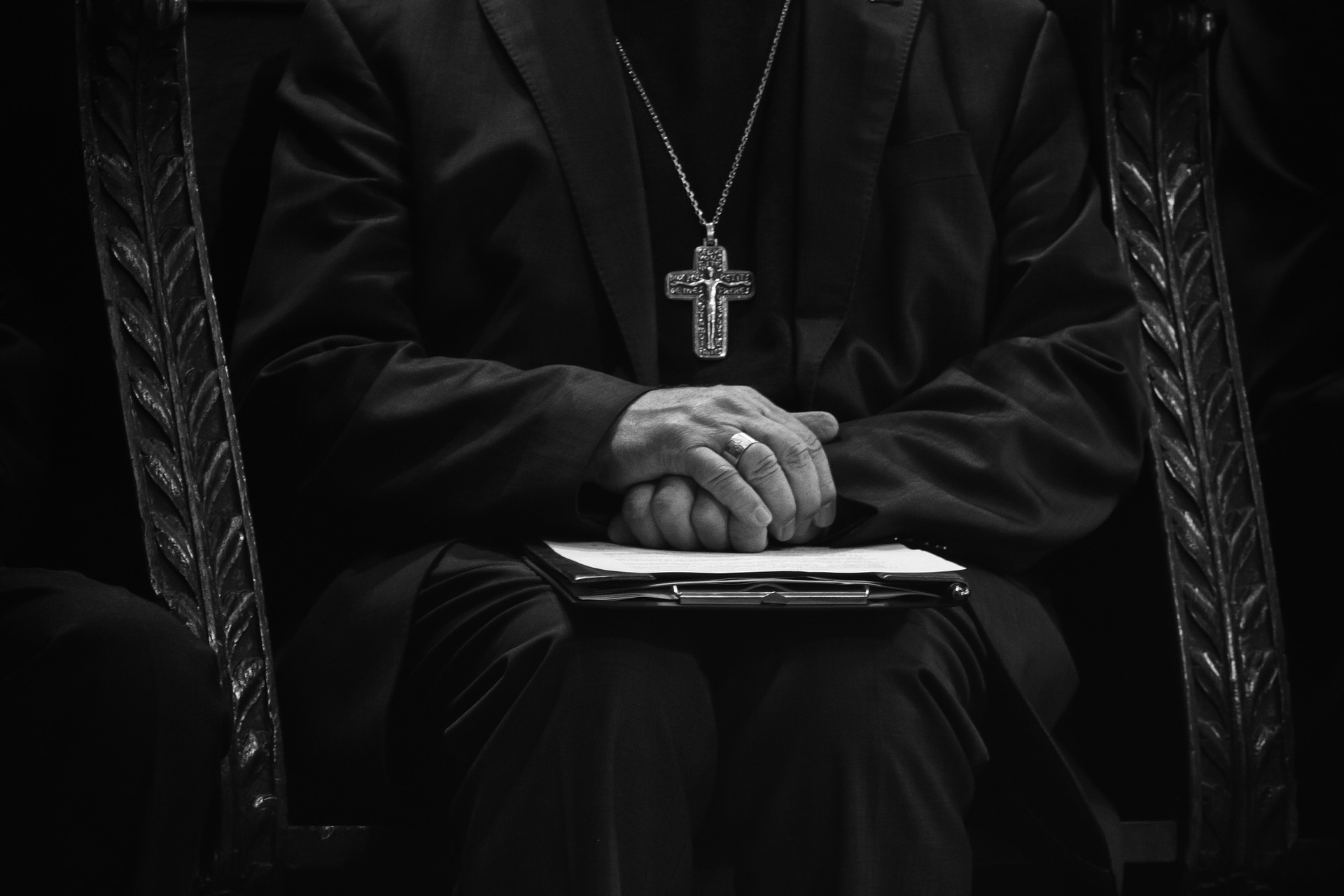While Wicca as a religion is now old enough to have grandchildren — children raised in the faith by parents who were raised in the faith by parents who converted to the Craft — there are still plenty of practitioners who come to Wicca and other traditions in Paganism from Christianity. And many of them came to the Craft because they were dissatisfied in some way with the institutions they were brought up in. Perhaps they didn’t feel connected with the tradition of their upbringing, or perhaps they were offended by policies held by the institutions representing those traditions. Many new Pagans go through a process of distancing themselves from the religion of their upbringing by airing their grievances about Christianity to other Pagans, which can give rise to Christian-bashing. But rather than blame every Christian on the planet for every wrong that ever happened in the church since the dawn of the Common Era, it can be beneficial to take a critical look at the institutions that support Christianity rather than demonizing the religion itself. Doing so can forge positive relationships between Christians and Pagans and build allyship where before there was only antagonism. It can also be instrumental in the process of making peace with Jesus, described in another essay.
I was fortunate enough to come from a liberal church in the Anglican Communion, but there were still things about the tradition I didn’t like. For starters, it was almost exclusively focused on cis men and the male body. The language used to describe God, as in many Christian traditions, was masculine, and as a female-bodied person still working to uncover their own genderqueerness, that struck me as unfair and biased. After all, half of humanity was female, and God created humanity in Their image, so it made sense that the feminine was just as much a part of the Divine as the masculine. My other major concern was the question of gay marriage, which at the time was still being debated. The church defined marriage as between one man and one woman, and as I became a teenager and became more aware of my own queerness, I worried that I might not be able to marry the person — or people — I fell in love with. If God was love, as the Catechism outlined, then how could the sexual expression of love or the solemnization of love through marriage be wrong? I already felt dismissed by my parents for my sexuality — at fourteen, I was “too young to know for sure” if I were attracted to the female form or womanly gender — and I was pretty sure I’d be rejected by my church for stepping outside the lines of conventional sexuality. The welcoming Episcopal Church was not welcoming to me, or at least it felt that way at the time.
Even two decades later, I saw some of the same problems rearing their ugly heads. My uncle, a newly made priest, was asked by one of my relatives what he would do if asked to marry a gay couple. His answer was to say that his bishop would not allow him to do so. It skirted the issue of whether he personally thought gay marriage was wrong, which stopped a family argument before it could start, but it made me feel quietly unwelcome. Just a few years before, I’d watched on the sidelines as the Episcopal Diocese of Arkansas did its best to act faithfully in the aftermath of the Rev. Gwen Fry announcing that she was publicly transitioning in order to more fully live her truth as a transgender person. It went over, as you might expect, like a lead balloon. And, for me, the idea that, if I were to begin the process of becoming an Episcopal priest as I was considering at the time, I could be rejected out of hand for being my authentic self, that I could lose all I’d worked for simply because others did not accept me, struck me as terribly unjust. Both experiences, in fact, reminded me of why, as much as I enjoyed the ritual and pageantry of the Episcopal Church and appreciated the structure of its organization, I didn’t belong there. It wasn’t made for people like me. And when people like me tried to interact with it according to its liberal top-level policies, the more conservative grassroots element ensured that the status quo was maintained.
Not All Christians
One realization that was extremely important for me to come to was that not all Christians believe in or follow their church’s doctrine. As a result, it’s impossible to paint a single congregation or denomination with a broad brush. There are Catholics who use birth control. There are Baptists who drink alcohol. There are Seventh-Day Adventists who dance. As such, it’s best to reserve judgment of individuals until they make their opinions known to you through word or deed.
Institutionally, it’s the people who keep to the doctrine of their church who are elected to positions on the board of directors, steering committee, vestry, or whatever body holds the responsibility for overseeing the operations of the organization. Asking yourself who has power in the church and why can be a good start in criticizing the organization. Are some positions de-facto hereditary? Do all of the board members conveniently have high net worths? Are they all major donors? Do they come from the same socioeconomic class? Race? Sex? What unites them? What seems to be their personal agenda in serving on the board? Answering these questions will help you determine the power dynamics you’re dealing with and discern whether your criticism, should you decide to bring it to the attention of the institution, will be brushed off, incorporated, or result in retaliation.
Duties and Privileges
Institutions are, by their nature, conservative and slow to change. Even socially liberal institutions are subject to this fact. That’s because institutions are full of people and money, and when those two things collide, there is always friction.
In the legal world, there is something called the duty of care that directors, trustees, employees, and other people affiliated with an institution (such as a church, corporation, non-profit organization, or for-profit business) are charged with carrying out. The duty of care requires those people to ensure prudent use of all of the institution’s assets, including money, facility, people, and reputation. These leaders must also adhere to two other duties: the duty of loyalty and the duty of obedience.
The duty of loyalty simply means that the transactions and activities of the institution must go toward whatever its mission is. Conflicts of interests must be disclosed and decisions must be made in the best interests of the institution rather than those of any individual board member, employee, or other leader.
The duty of obedience feeds into this: in order to advance the mission of the institution, the leaders must hold to that mission, follow their own bylaws and policies, and obey applicable laws and regulations.
These three duties are central to good governance of an institution. The breach of them is also a common cause of corruption. Maybe there’s money being spent on things it shouldn’t be spent on. Maybe leaders are conducting business which may help the organization but also unfairly lines their pockets. Maybe the official rules say one thing but the unofficial procedures say something entirely different. Another thing to ask yourself when criticizing the institution of the church is how are these three duties being or not being carried out? Is there an unofficial way of doing things that seems to be more accepted or effective than the official way? Do the same people get business contracts? Are those people on the board or major donors? Are some people protected and other people expendable? Is the institution spending its money on things that do not support its mission? What is the core mission of the church and is it being carried out? Do you agree with that mission? Why or why not?
Many organizations uphold the three duties. Some, quite blatantly, do not. They usually have good lawyers. They usually also have a high number of true believers who have placed their faith in the institution and will come to its defense even if it’s not in line with other religious, social, or personal beliefs. Doing battle with these organizations can be fraught with peril, particularly legal or social peril. After all, the reputation of an organization is considered an asset. Damaging the reputation of an institution can be personally costly to a critic even if it is the conscientious thing to do. Being prepared for this possibility and taking steps to safeguard against retaliation is a prudent course of action if you intend to confront the institution about its wrongs.
What to Do With Your Criticism
Criticizing the actions, policies, or doctrine of a church is a beneficial exercise for personal growth. Understanding exactly what you disagree with and why can help you evolve as a Pagan. Private discussion with both Christian and Pagan friends can help you discern the difference between personal religious belief and institutional policy based on that belief as well as why exactly you disagree with it at its core. Journaling about your thoughts can be immensely beneficial as well, and it can serve as a touchstone in your later years of practice about why you came to Paganism in the first place.
Some people feel the need to take their criticisms to the institution itself, whether in the form of a letter, like a recovery letter or a notice of intent to sue, or through some kind of public media, like radio, internet, social media, or television. I encourage you to do as your conscience dictates but be aware that reactions can run the gamut from being accepted to being totally ignored to being hushed up to being retaliated against. Christianity has existed for thousands of years. It is powerful and has the benefit of being the culture of the land in many places, including the United States. People who criticize these powerful institutions in a way that threatens the instution’s freedom to act as they will may be socially ostracized from Christian family and friends. In extreme cases, critics may lose housing, jobs, or even custody of their children. They may be offered a payout for their silence. They may be excommunicated, though for some Pagans this might be a cause for celebration. Or their criticism can be the beginning of policy change for the church they left. There are any number of things that may happen.
Since change is often slow or doesn’t happen at all, most new Pagans tend to cut their losses with their old faith and start fresh with a new one, keeping a sharp eye out for things that remind them of why they left Christianity to begin with. Others, especially those who have suffered spiritual or sexual abuse at the hands of the church and its authority figures, may need to confront their abusers in order to heal. What you choose to do with your criticism of the Christian institution you grew up in is up to you, but I urge you take what you’ve learned from your criticism and bring it to Paganism so that the Pagan movement doesn’t make the same mistakes as other paths.

